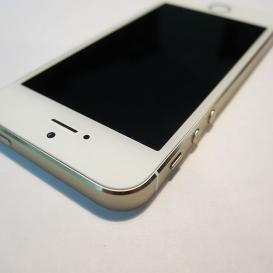The iPhone has been in the news a lot recently. Not because of a technical glitch, or a new model, but because sales of the device are flatlining. In the last quarter of 2015, Apple sold 74.8 million handsets, compared to 74.46 million during the same period in 2014.
Not only is this an indication that growth is slowing, but 74.8 million is also far below what analysts were expecting. Sales of iPads and iMacs were both down, as well, when compared to the same quarter in 2014.
The global market has reacted quickly. Berenberg, a German bank, has recently downgraded Apple’s stock to a ‘sell’ status.
Many will think that Apple has amassed both the reputation and money to weather this mini-crisis, and while that could be true (Apple has US$216bn in cash reserves), this latest news is set to worry both the company and its investors.
Uncertain territory
What this means for the company is slightly unclear, largely because this might not be an Apple specific problem. According to research firm Gartner, global sales of smartphones are withering, ecumenically. Sales growth in the market is now at its lowest level since 2013.
Recently, Apple has been relying on China to prop up its sales, and while revenue in mainland China rose by 14 percentage points in the quarter, there is worry that the broader economic slowdown in the country could pose a risk to the company.
Apple’s Chief Financial Officer, Luca Maestri, spoke to Reuters:
‘As we move into the March quarter it’s becoming more apparent that there are some signs of economic softness… We are starting to see something that we have not seen before.’
Repeat of trends?
Apple has seen this sort of trend before. In the final few months of 2013, iPhone sales grew by only 7%. After this, the company introduced the larger-screened models, which allowed sales to skyrocket. This effect was very noticeable in the Asian market, which saw customers opt for the iPhone rather than a Samsung device for a‘phablet’-sized phone.
Tech analyst Jan Dawson, of Jackdaw Research, said of that turn of events that: “Apple really pulled the big lever they had left un-pulled, up to then… That was sort of a one-off event.”
Apple, though the largest company in the world by market capitalisation, is widely regarded as a one-product type of company. This makes the company particularly vulnerable to big changes in the market. Even if it wishes to change this image, it doesn’t necessarily have the products to do it: sales and interest in the iPad are faltering, and the Apple Watch does not seem to have any real sort of mass appeal.
Broadening the company’s product base is clearly on Tim Cook’s mind. He recently talked about virtual reality, saying,
‘… it’s not a niche – it’s really cool and has some interesting applications.’
There is an argument that anyone who wanted to upgrade to a larger screened device, such as on the iPhone 6S, has done so already and others who have kept there handset are doing so to avoid an obtrusely large screen. Or indeed, are simply avoiding upgrading to (and paying for) a new handset simply because they are supremely satisfied with their current device. Apple is renowned for some of the highest satisfaction rates in the industry, and that is not conducive to forcing people to buy new products. In fact, when Apple rolls out new software updates, it will often make sure the new iOS works for older handsets, something called ‘legacy support’.
Meanwhile, Samsung owners are forced into an upgrade almost as soon as they leave the shop.
A bounce back is to come
iPhones, for a number of years now, have had sufficient processing power, and hardware, to handle the vast majority of iPhone users’ every need. Most iPhones can cope with multiple applications, internet, and social media, so many customers will see even less need to go to the hassle of sorting out a new contract.
The outlook for Apple does have some redeeming features. Apple’s ‘other’ products category (which includes Apple TV, Beats accessories, Apple Pay, and the Apple Watch) saw large growth.
In addition, their vast asset store will also keep deep trouble at bay, according to Murillo Campello, a finance professor at Cornell University: “Apple still has a lot of value, a lot of cash flow, so it’s not to say the company is in trouble. But it’s difficult to say that it’s on the cutting edge.”
While Apple need not worry too much, this lackluster growth could make Tim Cook more inclined to change the company’s strategy, if only slightly. Product diversification, an observation of competitors, and a review of customer demands could all help alleviate any arising issues.
“Apple’s often surprised us with what they end up doing,” further notes Jan Dawson. But this surprise might need to be slightly more ambitious than another few millimetres added to the screen.
What do you think about Apple’s future? Have your say in the comments section below.









